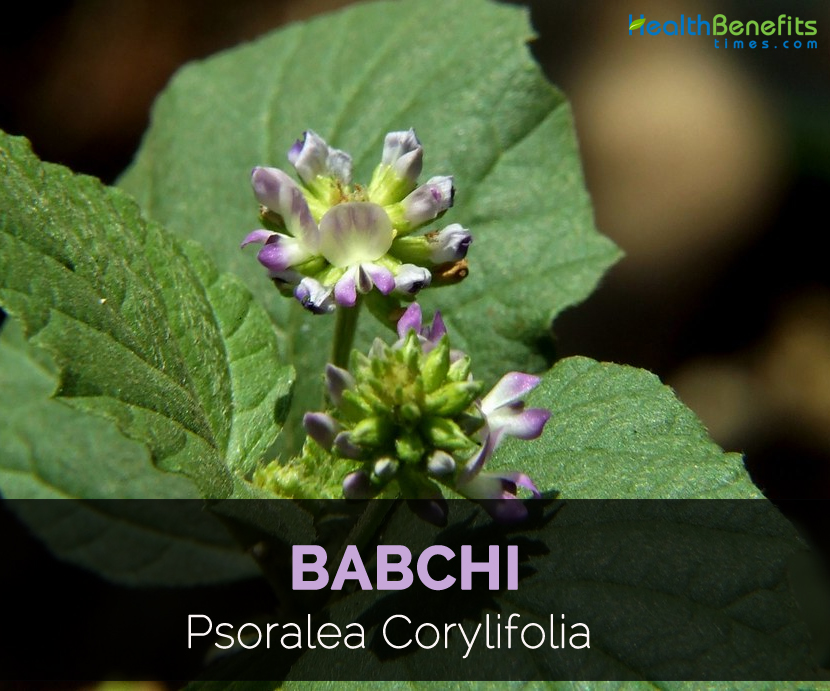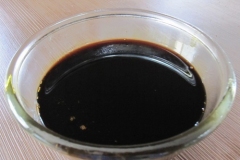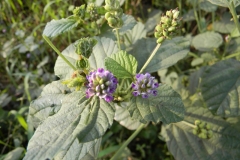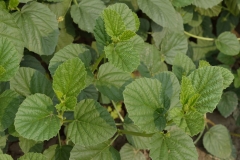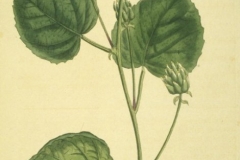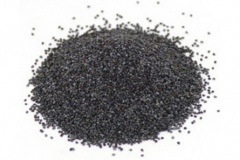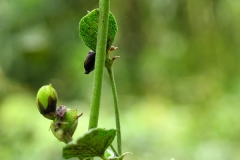Health benefits of Psoralea Corylifolia
- Combat skin ailments
Babchi seed oil is used to treat skin ailments. It is also known as kustanashini. The extracts have been used since primordial times to treat skin problems such as dermatitis, eczema, boils, skin eruptions, vitiligo, scabies, leucoderma and ringworm. Vitiligo is the skin condition that occurs due to loss of melanin pigments or death of melanocytes cells in skin resulting white patches. Babchi oil has psoralens that promote pigmentation and promotes stimulation of melanin pigments in skin structure. Use the mixture of 2 drops of Babchi oil with 1 drop of Orange oil, 1 drop of Lavender oil, 1 drop of Frankincense oil, 2.5 ml of Jojoba oil and apply it on affected parts. It helps to treat ringworm, scabies, itching, vitiligo, edematous skin conditions, red papules, eczema, inflamed skin nodules and discolored dermatosis. It promotes blood circulation, support production of melanin pigments, purifies blood and improves color of skin, hair and nails.
- Strengthen teeth and bones
Babchi essential oil pacifies excess kapha dosha and also strengthens bones by promoting bone calcification. This oil has high content of calcium, so massage 5 drops of Babchi oil, 2 drops of Birch oil, 2 drops of Black Cumin oil along with 10 ml of sesame oil to strengthen bones, boost women’s health and to recover from dislocation of bones and fractures. Babchi essential oil has astringent, antibacterial, antimicrobial and antiseptic properties that treat weak gums, plaque, bad breath or halitosis and oral conditions. Use one cup of warm water with 1 drop of Clove oil and 1 drop of Babchi oil in the morning and night to strengthen gums and teeth.
- Respiratory health
Babchi essential oil is responsible for accumulation of phlegm or mucus deposits in respiratory passages and lungs. This oil helps to reduce chronic fever. Add 2 drops of Babchi essential oil and 1 drop of Peppermint oil to steam inhalation to provide relief from nasal congestion, cold, bronchitis, headache, whooping cough, breathing difficulties, asthma and sinusitis. Massage chest, throat and back with 1 drop of Babchi oil with vaporizing ointment to improve respiratory health.
- Reproductive health
Babchi oil has aphrodisiac properties that support reproductive problems in both men and women. It is a tonic for entire system and promotes vitality and absolute health. Babchi fruits and seeds powder are used with its essential oil to treat impotence, incontinence, frigidity, premature ejaculation and lack of sexual interest. Massage lower back, genital organs and lower abdomen externally with 2 drops of Ylang Ylang oil, 2 drops of Babchi oil and 2 drops of Cinnamon oil blended with 3 ml of Jojoba oil to enhance mood, uplift senses, relax nerves, augment libido and sexual feelings and stimulate reproductive organs. To elevate mood, add 2 drops of Babchi oil with 1 drop of Sandalwood oil and 1 drop of Rose oil in warm bathing water before going to bed.
- Treat cancer
Babchi oil is used for treating various cancer types including lung cancer. Study shows that the chemical components such as psoralen, corylfolinin and bavachinin slow the growth of lung cancer cells and osteosarcoma. The compounds extracted from Psoralea Corylifolia helps to treat oxidative stress, programmed cell deaths and other cellular damage in cancer patients due to its chemopreventive effects and immune stimulant.
Traditional uses
- In Chinese herbal medicine, it is used to upgrade general vitality.
- It is used for treating skin disorders such as vitiligo.
- Fruits are used as a tonic for genital organs.
- It is used for treating febrile diseases, impotence, premature ejaculation, frequent urination, lower back pains, bed wetting, and incontinence.
- Use it externally for treating various skin problems such as leucoderma, leprosy and hair loss.
- Vaidyas use the power internally for leprosy and leukoderma.
- It combats vitiligo, a disorder in which skin loses the pigmentation.
- Roots are used to treat teeth caries.
- It also promotes bone calcification and treats bone fractures and osteoporosis.
- Leaves are used to provide relief from diarrhea.
- Fruits are used to prevent vomiting, treat piles, anemia, bronchitis and improve complexion.
- In India, seeds powder are mixed with yellow arsenic and made a paste with cow’s urine.
- Use the powdered seeds externally with buttermilk to treat scabies and ringworm.
- Take the seed oil with betelnut leaf for treating leprosy.
- Seeds are useful for snakebites, bilious disorder and scorpion sting.
- Use the plant with Haritaki and Nutmeg for chronic diarrhea and treating cold symptoms.
- Treat the ringworm with Bakuchi and sesame seeds.
- It is also used as a cure for gynecologic bleeding.
- Seeds are used to heal ulcer, heart troubles, blood disorders and elephantitis.
- It is used to treat hair loss and eczema.
Part Used
- Seeds
- Fruits
- Leaves
- Flowers
- Roots
Dosage
Oil: 3-4 drops
Seed powder: 1-3 gm
Side effects
- It might cause nausea and vomiting.
- Use it under the medical guidance.
- It causes blisters in people with sensitive skin so do not use it regularly.
- Excess use of Babchi oil on the skin can cause skin discolouration.
- Its overdose causes adverse side effects such as diarrhea, nausea, headaches and vomiting.
References:
https://www.itis.gov/servlet/SingleRpt/SingleRpt?search_topic=TSN&search_value=501838#null
https://en.wikipedia.org/wiki/Psoralea_corylifolia
https://echarak.in/echarak/templates/Psoralea%20corylifolia%20Linn.%20.pdf
https://shodhganga.inflibnet.ac.in/bitstream/10603/59611/7/07_chapter%203.pdf
https://www.hindawi.com/journals/ecam/2016/8108643/
http://www.ijbbb.org/papers/98-B136.pdf
https://www.planetayurveda.com/library/bakuchi-psoralea-corylifolia/
https://honeyfurforher.com/bakuchi-babchi-psoralea-cordifolia-uses-benefits-side-effects/
Comments
| Babchi Quick Facts | |
|---|---|
| Name: | Babchi |
| Scientific Name: | Psoralea Corylifolia |
| Origin | Native to India and Sri Lanka, and was occasionally cultivated in Arabia for its supposed medicinal properties |
| Colors | Dark chocolate to almost black |
| Shapes | Ovoid to oblong, somewhat compresed, (3.5–4.5 × 2.0–3.0 mm) |
| Name | Babchi |
|---|---|
| Scientific Name | Psoralea Corylifolia |
| Native | Native to India and Sri Lanka, and was occasionally cultivated in Arabia for its supposed medicinal properties |
| Common/English Name | Bakuchi, Bkchi., Bavanchi |
| Name in Other Languages | Arabic: Loelab el abid, Mahalep; Assamese: Habucha; Bangladesh: Buckidana; Bengal: Somraji, Bakuchi, Hakucha Veeja, Bavachi; Chinese: Pu Ku Chih, Ku Tzu, Bu Ku Zhi, Cot Chu; English: Psoralea seeds, Babchi seeds; German: Bawchan; Gujarati: Bavachi, Babchi; Hindi: Babachi, Bavanchi, Bhavanj, Bukchi, Bavachi, Babchi, Bakuchi; Kannada: Bauchige, Bhavantibeeja, Bhavanchigid, Baukuchi, Bavanchigida, Karbekhiga; Kashmiri: Babchi; Malayalam: Karkokil, Kapokkari, Kaurkoalari; Marathi: Babachi, Bavachya, Bawchi; Nepalese: Bakuchi Oriya: Bakuchi Persian: Waghchi, Vabkuchi; Punjabi: Babchi, Bavchi; Sanskrit: Aindavi, Avalguja, Bakuchi, Chanderlekha, Chanderprabha, Kushthahantri, Sashilekha, Shulotkha, Sitavari, Soma, Vejani; Sinhalese: Bodi; Sri Lanka: Ravoli; Tamil: Karpogalarisi, Karpokarisi, Karbogalarisi; Telugu: Bavanchalu, Bhavanchi-vittulu, Bogi-vittulu, Karu-bogi; Urdu: Babchi, Bebechi |
| Plant Growth Habit | Leguminous, erect, annual herb |
| Growing Climate | Sub-tropical |
| Plant Size | 60-100 cm tall |
| Leaf | Simple, broadly elliptic, rounded, 2.5-7 cm long |
| Flowering time | August to December |
| Flower | Pale-purple |
| Pod shape & size | Ovoid to oblong, somewhat compresed, (3.5–4.5 × 2.0–3.0 mm) |
| Pod color | Dark chocolate to almost black |
| Seed | Oblong, flattened, dark brown |
| Taste | Pungent-bitter |


